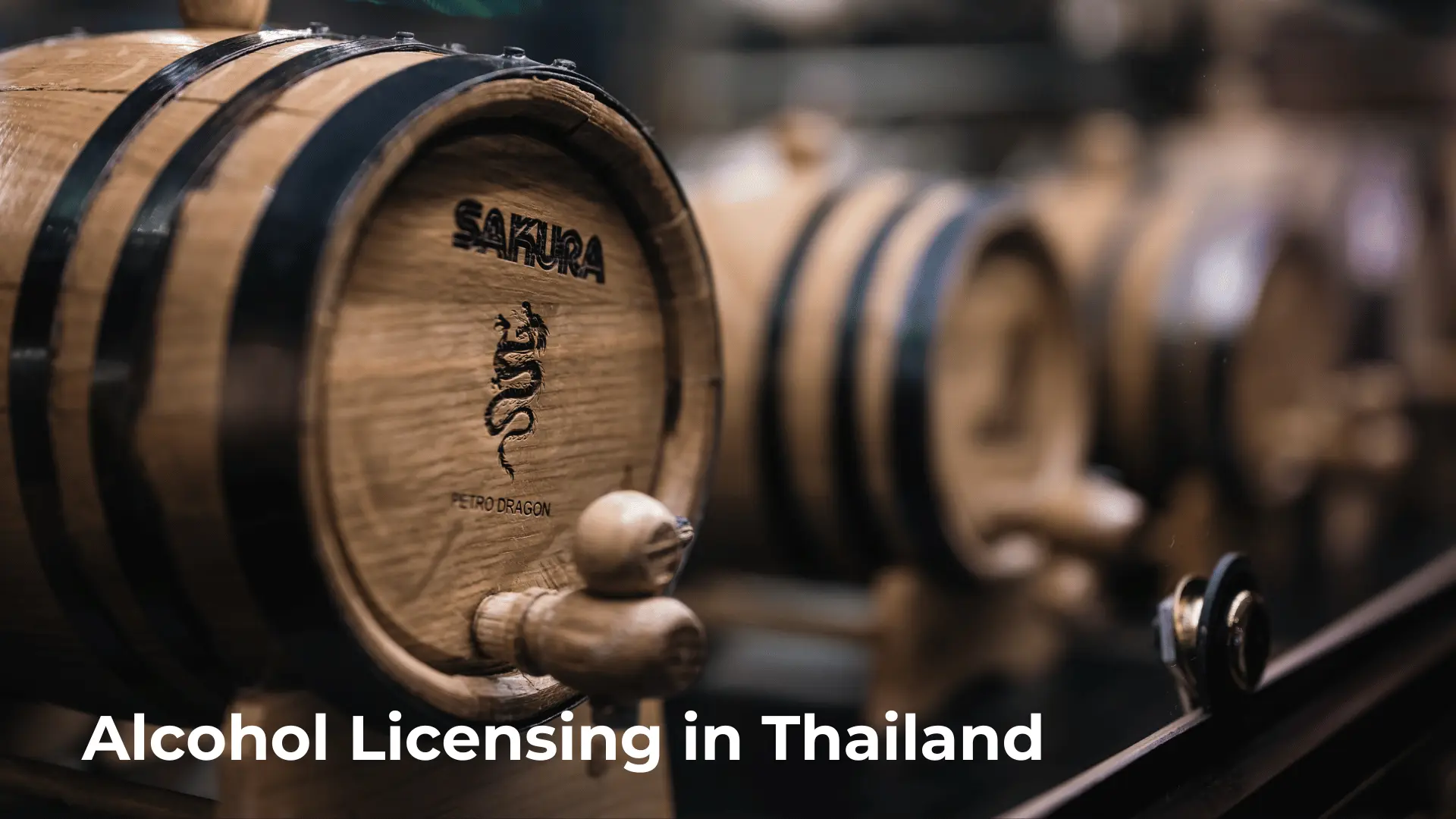
Alcohol Licenses Thailand
In Thailand, you will need an alcohol license for the production, sale, and importation of alcoholic beverages. Businesses involved in these activities will need to obtain the appropriate licenses from the relevant authorities to operate legally. Each type of alcohol license has specific requirements.
Manufacturing Alcohol
Selling Alcohol
Importing Alcohol
Manufacturing Alcohol in Thailand
,rFor businesses planning to manufacture alcoholic beverages in Thailand, obtaining an alcohol license for manufacturing from the Excise Department is essential. There are different regulations for various types of alcohol production, such as beer, wine, and distilled spirits.
Beer and Wine (Undistilled Spirits – Less than 15% alcohol):
- Microbreweries (under 100,000 liters annually): Microbreweries producing less than 100,000 liters per year are required to apply for a microbrewery license. The application process includes providing detailed information about production volumes, equipment, and safety protocols.
- Larger Breweries (over 100,000 liters annually): Larger producers must apply for a full brewery license. This involves meeting higher regulatory requirements related to equipment, facility inspections, and safety standards.
Distilled Spirits (More than 15% alcohol):
Distilled spirits, which have a higher alcohol content than beer and wine, are subject to even stricter regulations. The production of spirits requires approval from the Ministry of Industry in addition to the Excise Department. Distilled spirit producers must comply with additional safety and quality control standards, including inspections of production facilities and documentation of the distillation process. Facility must also be at least 100 metres away from public water sources, with proper waste treatment systems in place. The distillery should also be clearly separated from residential areas.
For larger-scale distillation, the business must demonstrate advanced expertise in managing production volumes and safety measures to ensure the products meet the required standards.
Documents Required:
- A completed application form (available at the Excise Department).
- Proof of business registration and tax identification.
- Shareholder’s details and copy of MOA.
- Details about the production facility (location, equipment, and storage capacities).
- Facility blueprints.
- Certificate of right to use land for distillery from district office.
- Compliance with safety and health regulations, including fire safety measures.
- Engineer’s certificate for distilled liquor.
- Blueprint of wastewater treatment (if applicable).
Selling Alcohol in Thailand
Businesses that intend to sell alcohol in Thailand, such as bars, restaurants, and retail shops, must secure a Type 1 liquor selling license. This alcohol license is essential for establishments selling alcohol directly to consumers, whether the alcohol is imported or produced locally.
Requirements for Selling License:
- Application Process: The application for the Type 1 liquor selling license involves completing the “SOR.2/64” form at the local Excise Department. You will need to submit this form with supporting documents, including a Proforma invoice and a sample label of the alcohol product(s) you wish to sell.
- Supporting Documents Required:
- Business registration documents and proof of business tax identification.
- Director’s ID/Passport and/or work permit.
- Consent letter to sell alcohol or lease agreement.
- Proforma invoice for the alcohol products, showing quantities and pricing.
- A sample label of the alcohol product(s) being sold.
- Location details of the business premises (including floor plans and zoning compliance).
Additional Regulations:
- Operating Hours and Restrictions: There are regulations governing the hours during which alcohol can be sold. Typically, alcohol sales are not allowed after midnight in most areas, though some exceptions may apply depending on the type of business (e.g., hotels and certain entertainment venues).
- Local Zoning: The selling of alcohol is subject to zoning laws. For example, alcohol cannot be sold in residential areas or close to educational institutions, temples, or certain government buildings. Ensure that your business location complies with these zoning restrictions before applying for a selling license.
Importing Alcohol into Thailand
If your business plans to import alcoholic beverages into Thailand, securing an import alcohol license is mandatory. This license is required for the commercial importation of alcohol and is subject to various regulatory procedures.
Required Documents for Import License (Commercial Trade):
To apply for the import license for commercial alcohol importation, you must submit the following documents:
- Type 1 Liquor Selling License: A copy of the Type 1 liquor selling license (if applicable) is required. This is the license for selling alcohol within Thailand.
- SOR2/74 Application Form: This is the primary application form for registering an import license for alcoholic beverages.
- Invoices or Proforma Invoices: These documents must provide details on the alcohol products being imported, including product types, quantities, and pricing.
- Label Approval: Label approval from the Excise Department for each product being imported. This is especially important for products like wine and spirits.
- Distributor Authorization: Documentary evidence showing that the seller is an authorized distributor for the imported liquor. This could be a letter or certificate from the manufacturer.
- Proof of Business Premises: A copy of a lease agreement or household registration to demonstrate that your business has a valid location in Thailand.
- Certificate of Analysis: A Certificate of Analysis showing test results for the imported liquor to ensure it meets safety and quality standards.
- Identification Documents: Copies of identification documents (such as a passport or Thai ID card) of the business owner or legal representative.
- Power of Attorney: If a third party is submitting the application on behalf of the business owner, a Power of Attorney may be required to authorize them.
Required Documents for Personal or Non-Commercial Imports:
If importing alcohol for personal or non-commercial use, the documentation is simpler and includes:
- A copy of the ID card of the importer (for individuals).
- A business registration or certificate of registration for juristic persons (for businesses importing alcohol).
Customs Duties and Taxes:
When importing alcohol into Thailand, customs duties and taxes will apply, which are based on the type and quantity of alcohol being imported. The Excise Department determines the duty rates, and these can vary depending on whether the alcohol is beer, wine, or spirits. Businesses must ensure compliance with these tax regulations to avoid penalties.
Need help with you alcohol license? Contact us for a free consultation
Frequently Asked Questions (FAQs)
How long does it take to obtain an alcohol license for import?
The process for obtaining an alcohol import license can take several weeks, depending on the type of alcohol being imported and the completeness of your application.
What penalties could I face if I don't apply for an alcohol license?
Operating without the necessary alcohol licenses in Thailand can result in severe penalties, including hefty fines, suspension of your business operations, and possible imprisonment for repeat offenses. To avoid legal issues, it’s crucial to ensure compliance with all licensing requirements.
Do I need a separate alcohol license for each type of alcohol I plan to sell or manufacture?
Yes, depending on the type of alcohol your business intends to produce, sell, or import, separate licenses may be required. For example, manufacturing beer and wine requires a different license from producing distilled spirits. Additionally, a separate selling license is necessary if you intend to sell alcohol at your establishment.
Can I import alcohol for personal use without a commercial license?
Yes, you will still need an alcohol license, however, importing alcohol for personal use does not require the same level of documentation as for commercial use. However, you will still need to submit some basic documents, such as identification or a certificate of business registration if applicable, and adhere to Thai customs limits on personal imports.

